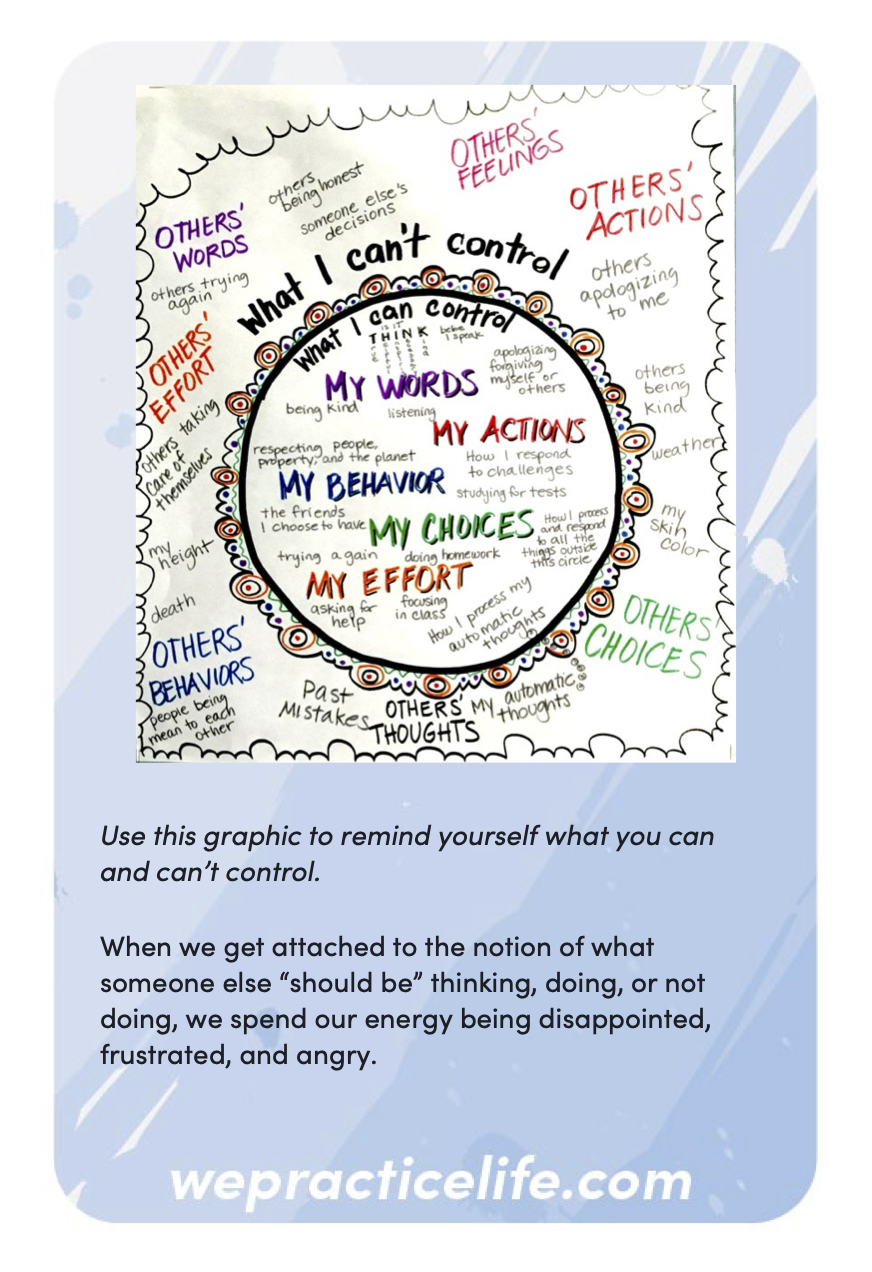emotion regulation: release what you can’t control
As a working mom raised in a culture of rugged individualism and relentless striving, I used to spend most of my energy “pushing through.” I took pride in barreling through obstacles, breaking generational cycles, and striving to thrive on all fronts. In my late 30s, after running completely out of drive and becoming emotionally exhausted, I was drawn to the work of Marshall Rosenberg, PhD.
Then and now, his body of work serves as a reality check for me. I use it to orient myself to my needs, values, feelings, and choices. It reminds me what choices I can make with the resources I have. It also reminds me that I can’t make anyone else think, do, say, or choose anything. After practicing to live by these principles for 17 years, I am more and more satisfied with my life. I am less and less stressed by what is outside my control.
Most of our practices are based on his work and integrated with a variety of other theories and practices by what I consider other creative and compassionate geniuses. For this week, I want to focus on the last line in the above paragraph. I don’t know about you, but for me, most of my stress comes from things I can’t control. The more quickly I identify the source, recognize and accept the lack of control, and identify what I do control, the more energy I have to shift my thoughts, actions to satisfying my needs to the best of my abilities and enjoying the resulting feelings.
Grieving lack of control in the moment:
This is how quickly grieving a lack of control can be processed.
(state what is outside my control)
I wish I had control over the traffic flow this morning.
I wish it was steady and predictable.
(state what is inside my control)
I do have control over how steady and predictable I drive.
(Without this I would likely get more and more frustrated and drive with less consideration, making the drive more stressful for me and others.)
(state what is outside my control)
I wish the weather changes didn’t give me migraines.
I wish I felt like being with friends I haven’t seen for a long time.
I can give my body what it needs and reschedule when I can be my best self and enjoy their company.
(Without this I would likely tell myself, “I made a commitment and I have to go.” I would struggle to listen and connect and be even more exhausted and in pain by the end of the night.)
It is human nature to wish for perfect environments and control over other people’s choices. It has been my experience that pretending to have control, pushing, persuading, or even demanding change in areas we don’t control, at best improves things briefly, at worst, pushes things to disconnection, resentment, disrespect, and so on. I prefer to have plenty of energy and be super effective within the areas I have control over. I prefer to witness and celebrate when others make choices that serve themselves and others’ needs with authenticity and personal empowerment.
Below are some examples of some general concepts for things within and outside our control.
Spending some time recognizing the frequent flyers in your daily list of frustrations:
Below is a colorful and engaging practice for identifying what is within and outside your control.
Many factors, including your life experiences, your personality type, and your mental, physical, and emotional energy levels will influence what stresses you out and to what level.
You can be extremely specific with this practice, working through current situations. You can also be broader and more conceptual.
If you work with a coach or mental health professional, what you learn about yourself in this practice can be great data to use with them for identifying limiting beliefs and behaviors and ultimately changing habits to bring you more clarity, peace, and sense of authentic empowerment.



